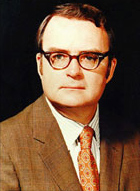A Quote by Joseph M. Juran
Pareto's Principle: you generally spend 80% of your time on 20% of the project.
Related Quotes
Economists often talk about the 80/20 Principle, which is the idea that in any situation roughly 80 percent of the “work” will be done by 20 percent of the participants. In most societies, 20 percent of criminals commit 80 percent of crimes. Twenty percent of motorists cause 80 percent of all accidents. Twenty percent of beer drinkers drink 80 percent of all beer. When it comes to epidemics, though, this disproportionality becomes even more extreme: a tiny percentage of people do the majority of the work.
Each time I do a trilogy it's ten years out of my life. I'll finish Episode III and I'll be 60. And the next 20 years after that I want to spend doing something other than Star Wars. If at 80 I'm still lively and having a good time and think I can work for another 10 years between 80 and 90, I might consider it. But don't count on it. There's nothing written, and it's not like I'm completing something. I'd have to start from scratch. The idea of a third trilogy was more of a media thing than it was me.
You go into a community and they will vote 80 percent to 20 percent in favor of a tougher Clean Air Act, but if you ask them to devote 20 minutes a year to having their car emissions inspected, they will vote 80 to 20 against it. We are a long way in this country from taking individual responsibility for the environmental problem.
































